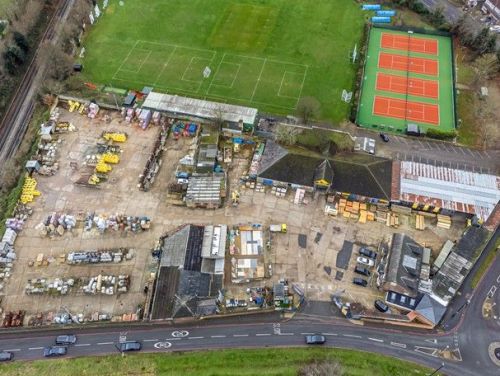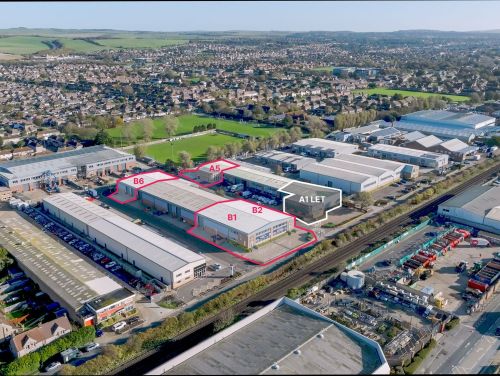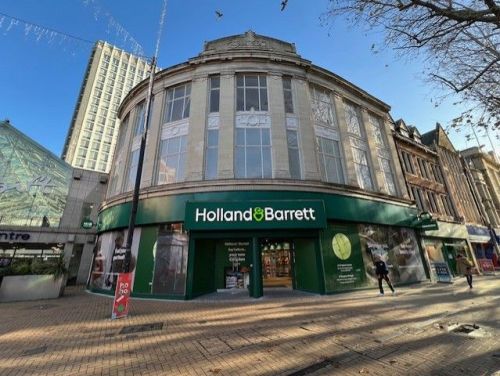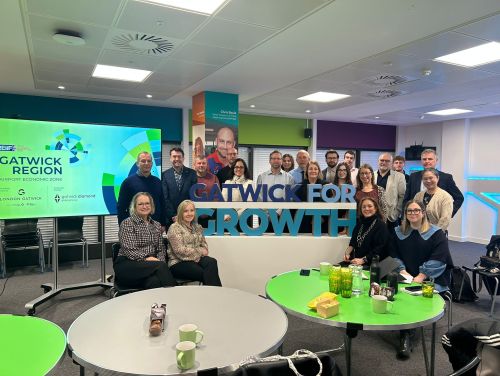23 November 2021
Back to work: The Facilities Management role
Commercial, Professional services, Property Management, SHW News
Tarniah Thompson answers some questions about her role as a Facilities Manager.
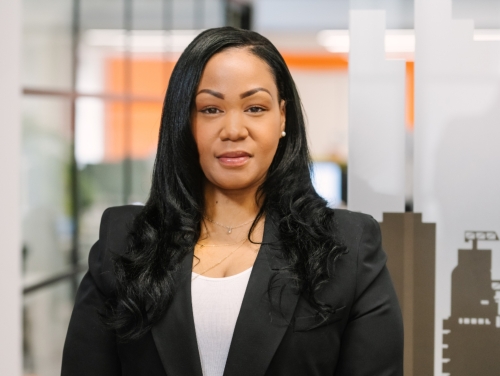
What are the biggest challenges facing FMs as people come back to work?
Ultimately, making sure people are comfortable and you have covered all bases! It is crucial to try at this time to try and get this right - making the necessary amendments where needed. We must 'buy back' people's trust (regarding safety) and commitment to returning to the office and for them to feel like it is an environment they want to be in. It is a challenging time for an FM because your initial thought is to focus internally but externally is what people see first - it is getting the balance right!
How has back-to-work gone so far?
I come from a different standpoint as at SHW we are managing agents and work on behalf of the landlord for various properties in and around the M25 and further afield. We have seen an influx of queries, mainly around additional facilities for staff wellbeing, sustainability and general maintenance. During the lockdown, we have pushed on with works that would normally be done out of hours in anticipation of people returning to work, such as energy efficiency A/C upgrades, deep cleaning and decorative works.
Did you make any changes to your office configuration? What and why? What worked?
Yes, SHW made changes to its office configuration to allow for the 2M distance rule and this meant offices had a lower occupancy even during 'peak' days. In the buildings we managed, we put in one-way systems utilising stairwells. This worked particularly well as it encouraged people who were able to use the stairs to navigate around the building, leaving lifts for the people who needed them most.
How has technology helped?
Technology has played a major part from being able to book desks internally to getting urgent works done on-site which we managed remotely. For example, we recently had an issue with a large CCTV installation where we had to change a cable route at the last minute, so the contractors had a call with me to show the new cable run via Teams. We have also met tenants over Teams to discuss potential return-to-work issues and strategies.
FMs role
What do you see your role in helping to build workplace culture? And how are you doing that? How are mission statements being given to you and what could be done to improve them?
A big focus is being placed on wellbeing/mental health and sustainability for ESG reporting and I see the FM role as helping to build this into the workplace culture, implementing and analysing the raw data provided by staff/tenants/customers and then communicating this to stakeholders. It is an FM's job to align the organisation's values, practices, and policies to drive positive change.
What should FMs have autonomy over to ensure they can carry out these missions?
Where is there often friction with leadership?
I feel FMs should have some autonomy over contractors. I have worked in FM positions where we have been 'tied' to contractors as they have been allocated a region, received bad service but been unable to change contractor. I am a firm believer that you are only as strong as your team, contractors included. In my role at SHW, having autonomy over who I work with on my portfolio speaks for itself, performance-wise, and allows me to drop contractors we are not best placed to work with.
Also, I would say an FM's active involvement at the early stages of a project can save costs. I have seen projects pushed through without any FM input or thought to maintenance; at project handover, the FM is left to figure out costly maintenance and upkeep on a shoestring budget, ultimately causing friction with the project leadership. FM involvement at an early stage avoids such issues.
How could senior leadership better support FMs?
Senior leadership could better support FMs by giving them a voice at executive level. I have seen many organisational structures with no FM input at the top and I feel companies are now recognising that and creating senior FM leadership roles, giving FMs a 'place at the table'. Another good move would be to look at ways to develop FMs' expertise, arming them with training and support, as they are expected to wear many different hats in the profession.
What role has demographic of the workforce played in decisions?
Shifting demographics and evolving societal expectations since Covid are shaping relationships between employers and their employees, with employees being consulted on key decisions to a much greater extent. Additionally, technology has been heavily relied upon and the need to bring in more systems to make work easier has become more widely accepted by senior personnel.
Company leadership and culture
Were things communicated well and how could they have been done better? Especially the ongoing nature of changes?
I joined SHW while Covid-19 was in full swing and during full lockdown but communication throughout the company has been second-to-none. All communications were transparent and direct which allowed me to do my job 'on the ground' effectively, providing clients with clear guidance on processes in our buildings and how they were to be managed during a time of uncertainty. The way in which this flexible culture was established allowed me to adapt accordingly, forging strong working relationships where they mattered most.
Are you seeing a move towards a culture of well-being in contemporary workplaces? And what is the role of FMs in this?
Wellbeing is becoming more of a focus and companies are recognising its relationship to productivity in the workforce. This is not just in contemporary workplaces, but across the board. External areas are more of a focal point for staff recreational breaks and break-out spaces have taken on greater importance.
Sustainability seems to be a priority for all businesses, is that true for you and how is it impacting your work?
Yes, it has triggered many conversations with clients and affected how we are continuing to do things. It has also made us think about the service we provide at SHW, making it more targeted towards sustainability to better help our clients with their ESG reporting.
Hygiene
How have you tackled demands for increased levels of hygiene?
We have instigated a more frequent cleaning schedule and assessed the way in which cleaning is delivered through the solutions and machines used. We have also looked at location and increased use of hand sanitisers where there is a heavier footfall, minimising the number of people congregating in one area.
Can you see a role for touch-free technology, and do you already have any?
100% agree there is a role and we have installed some touch-free hand sanitisers and foot-operated sanitisers. At the height of Covid, there was such a high demand that suppliers struggled to source fully touch-free units. I believe this will evolve, having seen automatic soap, wash and dry units in petrol stations, even prior to Covid-19. At the moment, everyone has rushed to just supply sanitisers in their building but, as the new norm takes root, people will start to look at more aesthetic ways of doing this.
How have you tackled people who are hygiene-hypervigilant?
Through planned e-communication and visual comms, which can be quite difficult when buildings have a certain look
to maintain. Irrespective of the rules, we have continued to post requests for mask-wearing across our buildings.
The future of FMs' role
What does the future hold for FMs?
FMs are liaising closely with HR and IT to implement hybrid working as it makes inroads into office life. FMs are also being brought into the decision-making process at an earlier stage. I have personally seen clients tapping into an FM's operational experience before implementing new ideas in order to achieve better results on impact. Also, a lot of FM roles are asking for sustainability and energy/building experience; recognised sustainability suffixes such as PIEMA and REnvP are helping FMs to stand out.
What are the most important things FMs should be focused on as we head into the tail end of 2021?
With Covid-19, the safety of a building's occupants and how we maintain building operations and the environment are foremost. Otherwise, we risk losing people who no longer want to work in the office environment.

